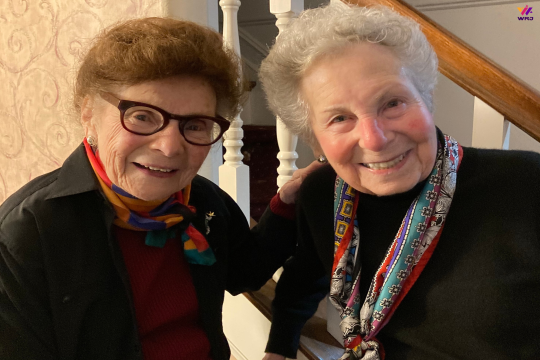
Growing up in the ultra-Orthodox Jewish community of London, I’d always experienced Judaism as a fusion of confusing rules, with a side dish of heart-warming traditions and melodies.
In Beis Ya’akov, the Haredi all-girls elementary school I attended with my sisters, we were taught to be meek, to blend in, to respect our elders – especially men, and to learn Torah in a deep and interesting fashion. Individual opinions were not valued.
Most of our teachers were women, but there were several male Rabbis and Torah scholars who we treated with extra distance and respect. Now that I think about it, this was usually enforced by the women educators themselves. Meaning that women were putting down other women, and the men simply filled the space they graciously created. Of course, the whole culture was patriarchal from its roots - but the fact that the women had a hand in keeping us all in line meant that no one questioned it.
I remember one time when a Rabbi made a derogatory comment in class by using my body type as an example for a halachic question. I was so bothered by it that I even mentioned the incident to my teacher, although I could be criticized for doing so. I was then called into the headmistress’s office and told (with a smile) that obviously the Rabbi was not aware of what he had said and did not mean it, and that there was no reason to say anything more about this issue. Basically – don’t make a fuss, and don’t accept an apology.
When I was 15, my family made aliyah and we became part of the modern Orthodox community in Jerusalem. My high school had a similar same men/women dynamic, but we were encouraged to ask questions, to dispute, there was more openness – so long as we accepted the official “final verdict” on our question. But still – men and women were not equal. And still, somehow, men commented on girls’ modesty and dress, and girls who defended themselves against such comments were sent out of the classroom. And in some extreme cases, were suspended or even expelled.
It’s no wonder that so many of my former classmates are no longer religious. The choking, rigid rules of Orthodoxy make for an eventual distaste and even revulsion towards religious Judaism. All rules and fear, no connection and engagement and warmth. And this is very sad.
Today, I am somewhere between secular and traditional. My husband, who grew up in a traditional Orthodox home is the same. We focus on enjoying the traditions and family gatherings that Jewish ritual brings while avoiding aspects that are non-inclusive and limiting.
I work on the development team for the Israel Movement for Reform and Progressive Judaism – something my father tried very hard to discourage me from doing.
I have since experienced what it is like to sit together with everyone else during Kabbalat Shabbat services instead of behind a partition and to sing my favorite melodies without having to lower my voice. I have attended services with Women of the Wall, been considered a part of a minyan, been up close to a Torah scroll. I have even been able to approach Rabbi Gilad Kariv (male) and ask pertinent questions about Reform Judaism without being scolded.
It still feels strange at times, but exhilarating. And I’m looking forward to seeing where this path of spiritual, meaningful, respectful Judaism takes me.
Related Posts

Andrea Stillman: A WRJ Leadership Spotlight


